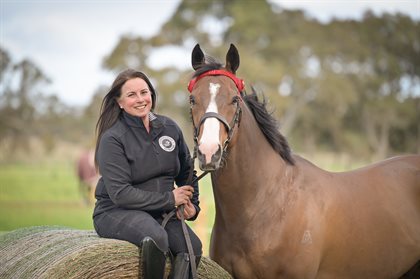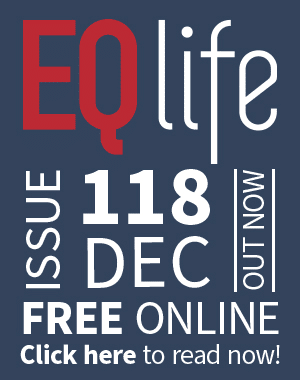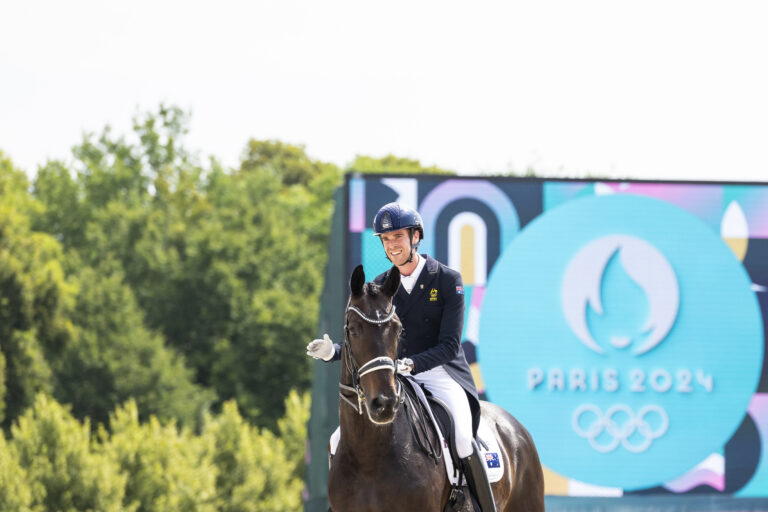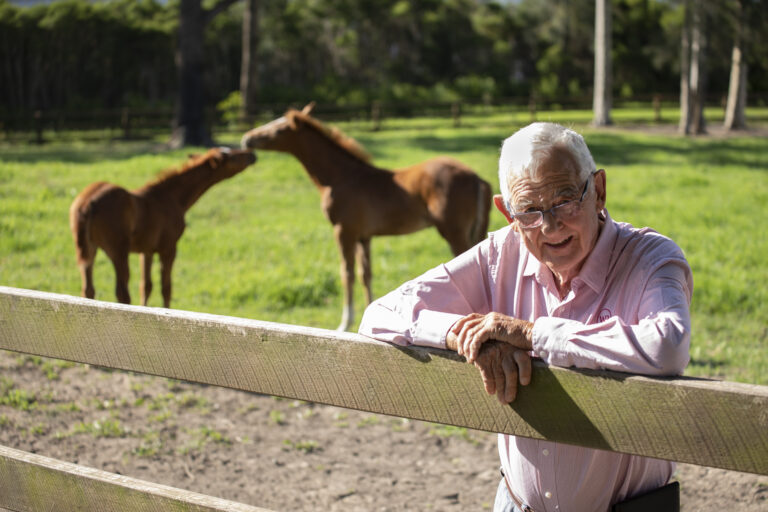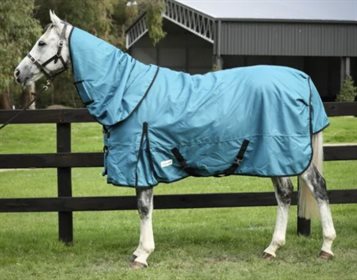Racing Victoria Acknowledged Retrainer, Fiona McIntyre.
© Racing Photos
RV’s Acknowledged Retrainer program means the horses are the winners
For close to a decade, Racing Victoria’s (RV) Acknowledged Retrainers have played an integral role alongside trainers and owners to rehome hundreds of racehorses retiring from Victorian racing each year.
With close to 50 Acknowledged Retrainers working across the state, they are helping to rehome on average 600 racehorses each year – playing a crucial role in the delivery of RV’s post-racing programs. Since its inception, the Acknowledged Retrainer Program has grown and developed to become an undeniable success. Fiona McIntyre is one of RV’s longest-standing Acknowledged Retrainers, having been part of the program for ten years. Just recently, her efforts in the industry were recognised when she took out the ‘Thoroughbred Care & Welfare Award’ as part of the 2022 Godolphin Stud & Stable Staff Awards.
“I’ve been retraining off-the-track Thoroughbreds (OTTs) for my own personal use for well over 30 years,” says Fiona of her history with the breed. “When the RV Acknowledged Retrainer Program started 10 years ago, I thought it was a great initiative. I’d also been doing some promotion of these wonderful horses with one of my own, Sirmione, a dual group one winning horse trained by Bart Cummings. I wanted to do more to help these horses and it made sense to officially become part of RV’s program and expand my retraining to help place more horses. I believe as one person I can only do so much, but by working as a collective we can achieve more for OTT horses.”
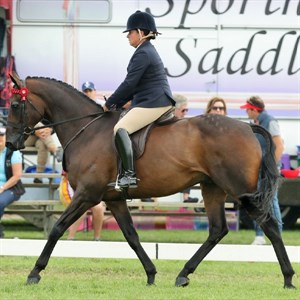
Fiona competing in the show ring with OTT Caravan Rolls On.
Image: Virtual Windsor Horse Show
The initial application process for Fiona involved completing an application, reference checks and a property inspection alongside riding and business assessments – all of which remain important elements of the process today.
“One of the main things I have learnt throughout my retraining journey is the vast improvement in the horses that are now coming off the track in terms of their trainability, versatility, and adaptability,” says Fiona. “OTT horses once had a rather large stigma attached to them for being hot and hard to transition into post racing careers. I find the horses these days have had a lot more education, which makes their retraining and transition into a post racing career that much easier.”
As someone who has been a part of the program for a long time, Fiona believes that first and foremost, a good retrainer must have really good horsemanship and horse husbandry skills – as well as the ability to treat every horse individually and adapt the work they do with each horse to best suit them.
“Have loads of patience; don’t rush the horse or put too much pressure on them, especially in the learning phase,” she declares. “Establish the basics as a foundation to build on. Not every rider has the skill-set to retrain an OTT and that’s perfectly fine. A lot of the work I do with these horses is done on ‘feel’; when you get that feel from the horse you need to be quick to reward the horse when they’re learning.
“A couple years ago whilst having a lesson with Andrew Hoy, he said the ‘feeling’ can’t be taught… you either have it or you don’t. That statement has always stuck with me. And finally, I think a good retrainer is of course a person passionate about working with retired racehorses.”
The next generation
Grace Chantler – who was this year’s ‘Thoroughbred Care & Welfare Award’ runner-up – is one of the program’s newer Acknowledged Retrainers, and she says she decided to become involved after following a couple of other retrainers on social media: “I liked the professionalism they showed; I felt like they were held in a higher regard to the community because they were associated directly with RV and were in a sense given the tick of approval,” she explains.
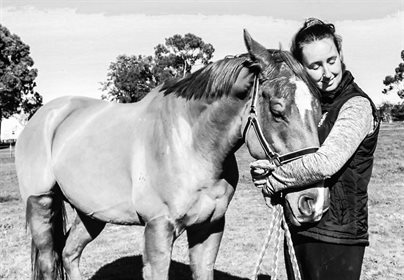
Racing Victoria Acknowledged Retrainer, Grace Chantler, with RESET horse Prize.
Grace applied directly with RV’s Off The Track team, which included completing an interview and then having Jen Hughes (General Manager – Equine Welfare) and Sam Davison (Equine Welfare Officer) visit her property. “We did a property assessment and I also did a ridden assessment in front of them. The requirements were to be able to retrain a minimum of three OTTs per year,” she recalls.
Grace says it wasn’t a complicated process to become an RV Acknowledged Retrainer, however it was thorough, and to get where she wanted to be before applying took a lot of hard work. “Our property was nothing but a sheep farm when we arrived, so to get it to a point where I could be accepted into the program took new fencing and a safe riding area. I was lucky enough to already have good connections with trainers in regard to getting horses. I also had a good social media following, which was hugely boosted again by becoming an Acknowledged Retrainer.”
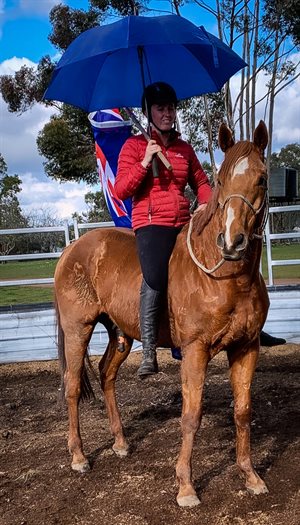
Grace believes that to be a good retrainer, you need to understand that you never stop learning.
Throughout the journey so far, one of the key things Grace has learnt is patience and understanding when it comes to dealing with buyers. “It can be a stressful time for them and you need to be patient; my ongoing support never ends when it comes to any horse I have sold, even if they have been on sold again.”
Grace believes that to be a good retrainer, you need to understand that you never stop learning. “You need to be understanding to ever changing situations, and you cannot always be in control. Patience is a huge factor. Any person who puts the horses first has what it will take to become a great retrainer. You need to be open to trying new things; I have had horses come in that would suit polo, which isn’t a discipline I know much about, but I am willing to learn to give the horse the best possible chance.”
New operating framework to further boost program
The RV Acknowledged Retrainer Program is forever evolving. It was given a huge boost in 2020 via the Acknowledged Retrainer Capacity Grant Program, which aimed to increase capabilities of retrainers – resulting in 20 per cent more horses transitioning through the network.
Now, RV has announced that to ensure the program continues to meet the needs and requirements of Thoroughbreds retiring from racing in Victoria, a more structured approach to supporting RV’s Acknowledged Retrainers is being implemented.
Following a recent review, RV has developed new operating framework to oversee those currently in the program or wishing to be an Acknowledged Retrainer in the future. This new framework will build on the decade-long work of experienced Acknowledged Retrainers such as Fiona, to provide clear minimum standards, obligations and the benefits of being an RV Acknowledged Retrainer. These new terms and conditions will also ensure that those utilising an RV Acknowledged Retrainer have full faith in their ability to care, retrain and rehome their horses to the appropriate second career.
For more information about finding an RV Acknowledged Retrainer or becoming one yourself, please visit the Off The Track Community page.
This article was written on conjunction with Racing Victoria.
READ THE LATEST NEWS ARTICLES HERE

